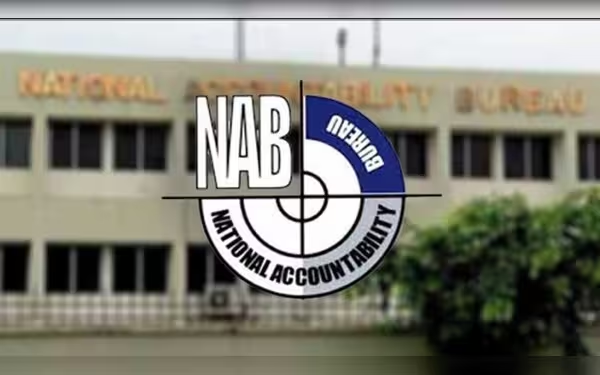Saturday, November 16, 2024 05:42 PM
NAB KP Achieves Rs168.5 Billion Recovery in BRT Project
- NAB rescues KP government from Rs31.5 billion claim.
- Investigation reveals fraudulent contracts and misappropriation.
- Settlement saves provincial government Rs168.5 billion.
 Image Credits: thefrontierpost
Image Credits: thefrontierpostNAB KP successfully recovers Rs168.5 billion in BRT project, highlighting corruption and accountability in public contracts.
PESHAWAR: The National Accountability Bureau (NAB) Khyber Pakhtunkhwa (KP) has achieved a significant victory in the ongoing saga of the Bus Rapid Transit (BRT) project, successfully rescuing the provincial government from a staggering claim of 31.5 billion rupees in the International Court of Arbitration (ICA). This development comes after a thorough investigation initiated by NAB in 2018, which focused on allegations of illegal contract awards, misappropriation of government funds, and the submission of fraudulent performance guarantees by contractors involved in the BRT project.
Initially, progress on the case was slow, but under the leadership of the current Director General, the investigation gained momentum. As a result, NAB was able to save an impressive Rs168.5 billion through a meticulous examination of the corruption scandal. This success was made possible due to the collaborative efforts of NAB, the Provincial Cabinet, the Provincial Administration, and the Peshawar Development Authority (PDA), all of whom played a positive role in reaching a settlement agreement.
The investigation revealed that six contracts for civil works were unlawfully awarded to four Joint Ventures (JVs), which included two local firms and three international firms. Although the contractors claimed that the international firms held 60 to 70 percent shares in the JVs, NAB's findings indicated that these partnerships existed only on paper. The local contractors exploited the reputations and financial capabilities of the international firms to secure these contracts fraudulently.
Once the contracts were awarded, the local firms executed supplementary agreements that allowed them to carry out the actual work while paying the international firms a mere 2% of the total tender value for their names and financial backing. This arrangement enabled the foreign firms to receive approximately one billion rupees without contributing any real work to the project.
Furthermore, NAB's investigation expanded to include a review of over 400 bank accounts linked to the firms, confirming that the local contractors transferred funds to the international firms' accounts on the same dates as outlined in the supplementary agreements. Despite the PDA's commitment to pay a 20 percent premium to ensure the project met international standards, the contractors failed to complete the work within the stipulated six months, and the international firms never set foot in Pakistan.
In addition to these findings, the investigation uncovered that the contractors submitted two bogus local bank guarantees worth Rs2 billion and eight foreign bank guarantees totaling Rs6.5 billion, all in violation of their agreements. Audit reports provided by the contractors were also proven to be fraudulent, as confirmed by NAB through the Securities and Exchange Commission of Pakistan (SECP) and the Chartered Accountant of the firms. It was revealed that representatives of the international firms had only visited Pakistan for a mere eight to ten days over the past five years.
As the investigation progressed, NAB placed all relevant individuals on the Exit Control List and issued a Red Warrant for one firm owner to ensure their return to Pakistan via Interpol. The relentless efforts of NAB's investigation team increased pressure on the contractors, prompting them to seek an out-of-court settlement with the PDA.
Ultimately, NAB KP facilitated negotiations between the contractors and the PDA, leading to a settlement agreement. Under this agreement, the contractors withdrew all claims, including the case filed with the ICA, while the PDA agreed to pay only Rs2.6 billion to the contractors. This resolution not only saved the provincial government a significant amount of money but also highlighted the importance of accountability and transparency in public projects.
The NAB's successful intervention in the BRT project serves as a reminder of the critical role that oversight bodies play in safeguarding public funds. It underscores the necessity for vigilance and integrity in government contracts, ensuring that taxpayer money is utilized effectively and efficiently. As the investigation continues to unfold, it is hoped that such measures will deter future instances of corruption and promote a culture of accountability within the public sector.













